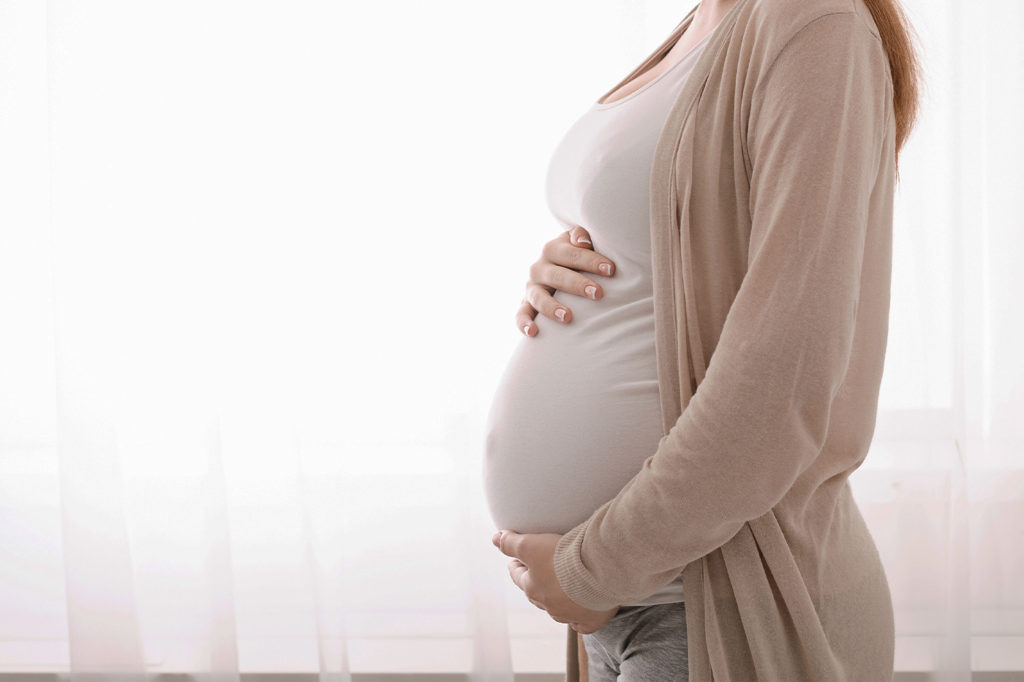A recent ruling by the UK Supreme Court has brought the legalization of commercial surrogacy in the United Kingdom several steps closer. On April 1st, the Supreme Court’s since-retired President, Lady Hale, provided the leading Judgment in Whittington Hospital NHS Trust v. XX. This Judgment has, for the first time, legitimized compensation claims against the taxpayer-funded National Health Service (NHS) in order to pursue commercial surrogacy services abroad that are illegal in the UK. The coronavirus pandemic has so far kept this Judgment off the media radar, but it represents an ominous development.
Commercial Surrogacy and Ideological Capture
In recent years, I have warned here at Public Discourse about the alliance between the multi-billion dollar Big Fertility industry and the modern LGBT+ movement, neither of which cares much about women’s and children’s rights. Big Fertility rides on the coattails of the LGBT+ movement in an effort to sanitize the perception of commercial surrogacy as an intrinsic LGBT+ right that enables male couples to have children. As a gay man, and as a gay rights campaigner over four decades, I am dismayed at the socially harmful, irrational, and bullying entity that the LGBT+ movement has become. The movement is now regarded as alien, unrepresentative, embarrassing, and irrelevant by so many gay and lesbian people, and has become obsessed with enforcing gender extremist ideology—an ideology that has nothing at all to do with sexual orientation or gay rights.
The April 1st Supreme Court Judgment—mistaken both on legal and ethical grounds—marks yet another worrying milestone in the relentless colonization and ideological capture of our major institutions by the LGBT+ movement. It is already well-documented how much harm is caused by commercial surrogacy to vulnerable women, by putting their physical, mental, and financial well-being at risk in a relationship of unequal power and wealth, and how much potential harm is caused to children. A very good introduction to the issues that exposes the dark side behind the happy families narrative is provided by the documentaries of Jennifer Lahl, currently available on Amazon Prime.
Start your day with Public Discourse
Sign up and get our daily essays sent straight to your inbox.The Case at Hand
Commercial surrogacy is illegal in the UK. It was banned by the Surrogacy Arrangements Act 1985 (SRA85), which only permits “altruistic” surrogacy, where the birth mother is entitled to payment of “reasonable expenses” but not commercial remuneration for her services. However, “reasonable expenses” are not defined in law, and payments of £15,000 to the birth mother are commonplace: a sum that exceeds the UK minimum wage. In addition, UK surrogacy birth mothers enjoy the incentive of statutory maternity leave and pay, even though, unlike other mothers, their baby is taken away at birth and cared for by others.
My impression is that there has not been a single prosecution or attempted prosecution under SRA85, a fact I attempted to confirm with the assistance of my Member of Parliament, until we met insuperable bureaucratic barriers. So, although it is technically illegal for a commercial surrogacy agency to operate in the UK, we already seem to have lower-payment commercial surrogacy via the back door in the guise of the “altruistic” arrangements.
XX’s very sad experience resulted from clinical errors that left her with serious disabilities. The hospital trust admitted negligence after it had failed to detect signs of cancer from smear tests and biopsies. As a consequence, XX developed invasive cancer of the cervix, requiring chemo-radiotherapy treatment that caused infertility and severe radiation damage to her bladder, bowel, and vagina. She was no longer able to carry children.
The High Court awarded XX £580,000 in damages, but turned down a claim for the pursuit of commercial surrogacy arrangements in California, instead offering her £74,000 for two legal “altruistic” surrogacy pregnancies in the UK, using her own pre-operation harvested and frozen eggs, where two successful pregnancies were thought to be probable.
However, XX said she had wanted to have four children and that she preferred the greater legal certainty that California surrogacy law would afford. She also felt that she would be in the driver’s seat with regard to choosing birth mothers, rather than feel like she was being chosen by them in the UK. This motivated an application to the The Court of Appeal, and then to the Supreme Court, both of which upheld her claim for commercial surrogacy costs in California—even though she had said she would have been prepared to accept the £74,000 and pursue “altruistic” surrogacy in the UK instead if her claim had failed. Despite commercial surrogacy being illegal in the UK, the Supreme Court was now forcing the UK taxpayer to fund someone’s pursuit of it abroad where it is legal.
Lady Hale, and two of her fellow judges, therefore granted an additional award of £560,000 specifically for commercial surrogacy, bringing XX’s compensation payment up to over £1 million. Two Supreme Court judges dissented, regarding it as being contrary to public policy for “the civil courts to award damages on the basis of conduct which, if undertaken in this country, would offend its criminal law.”
To put the costs in perspective, £500,000 would pay for 100 knee and hip operations for people in pain on long NHS waiting lists. Spending that money on four commercial surrogacy pregnancies abroad, which are illegal at home, seems instead to be the warped priority. The fact that the Court, by granting this, has encouraged a woman described as having suffered “long-term disability and psychiatric injury” to put herself under the physical and emotional strain of raising four children, should surely also give one pause.
New Definitions of the “Family”
Lady Hale refers to changes in social attitudes in recent decades, including to the concept of what is a “family”:
More dramatic still have been the developments in the law’s ideas of what constitutes a family. Traditionally, families were limited to those related by consanguinity (blood) or affinity (marriage). Hence at first only opposite-sex married couples could apply for parental orders. Now they have been joined by same-sex married couples, by same-sex and opposite-sex civil partners, and by couples, whether of the same or opposite sexes, who are neither married nor civil partners, but are living together in an enduring family relationship. They have also been joined by single applicants. All of these would be regarded as family relationships within the meaning of article 8 of the ECHR (European Court of Human Rights).
The change in social attitudes towards same-sex couples and same-sex parenting seems to have carried significant weight in motivating Lady Hale’s decision to legitimize compensation payments for commercial surrogacy abroad, even to the extent of endorsing an activity elsewhere that constitutes a criminal activity in the Supreme Court’s own jurisdiction: “Obviously, male same-sex couples can achieve parenthood only through adoption or surrogacy, and there is evidence of a growing demand from them for surrogacy arrangements. The UK surrogacy organisations report a growing proportion of male same-sex couples using their services. . . .”
Despite her endorsement of commercial surrogacy, an industry strongly opposed in the feminist movement because of its exploitation, instrumentalization, and commodification of often vulnerable, low-income women, Lady Hale presents herself in general life as an ardent feminist. She even expresses an awareness of the harm caused by commercial surrogacy in her Judgment: “While the risks of exploitation and commodification are heightened in commercial surrogacy, they are not thought an insuperable ethical barrier to properly regulated arrangements.”
Those of us involved in the campaign to end commercial surrogacy are all too aware of how no amount of “regulation” could lead to the adequate protection of the women and children involved. All surrogate pregnancies are high-risk pregnancies that threaten physical and psychological harm to the mothers, to the babies who are cruelly removed from their birth mothers as soon as they emerge into the world, and to the future, genealogically bewildered children. As in the case of human organ sales—banned everywhere except in Iran—this is an industry that pressures people to take risks that they would otherwise eschew, and to take them because of an urgent need for money—risks that could cost a woman her life.
The Political Pecking Order
The modern western LGBT+ lobby, as I know from personal experience as a longstanding gay activist, is not inclined to nuanced interpretations, thoughtful reflection, or reasonable compromises. Anyone expressing reservations about commercial surrogacy these days can expect an accusation of “homophobia” or even “liberal homophobia.” As Lady Hale points out, surrogacy is a major route by which gay male couples can be provided with children. So surely, to oppose commercial surrogacy for everyone and every group (as I do) is by implication to oppose equal rights for gay men?
The modern western LGBT+ lobby, as I know from personal experience as a longstanding gay activist, is not inclined to nuanced interpretations, thoughtful reflection, or reasonable compromises.
My observation is that a hierarchy of protected groups has arisen, where the LGBT+ lobby (which is today dominated by extreme gender identity politics) reigns supreme, and other groups, such as women, find their human rights thrown under the bus whenever there is any conflict over issues such as sex-based rights and protections, or surrogacy. Even the feminist Lady Hale knew when to step aside, bow her head, and make way for the LGBT+ surrogacy juggernaut. In liberal circles, it has become an unspeakable heresy to question anything in the LGBT+ catechism, even when in defence of women’s rights: a heresy that can even lose a person her job. This is why so many LGB people feel we are no longer represented by the LGBT+ movement. Many of us oppose claiming anything as a “right” that undermines the rights of other people and other groups. There is no universal human right to be a parent. I support same-sex parenting via adoption (which does not involve payment in the UK), but I will never support anyone, gay or straight, being permitted to exploit, commodify, and harm women and children via surrogacy.
Judicial Overreach
The UK Supreme Court was established in 2009 under a Labour government, replacing the House of Lords as the final court of appeal. Particularly over the past year, some of its judgments, including the one under discussion here, have caused considerable consternation among conservatives, leading to accusations of political meddling and judicial overreach. A leading Judgment by Lady Hale in September last year declared the Government’s early shutting-down of Parliament to be unlawful: a Judgment cheered by the anti-Brexit Left and that was met with a scathing critique by the eminent jurist and legal philosopher, Professor John Finnis, who called it “through and through political” and a “usurpation of supreme constitutional power.” The most recent accusation from conservatives of judicial overreach relates to a further case last month where the UK Supreme Court set a precedent that blocks the deportation of criminals if the healthcare system in their country of origin is inferior to that in the UK.
The XX case is an ominous one that portends a burgeoning surrogacy market in the UK and the dire prospect of our becoming a favoured resort for covert commercial surrogacy tourism, where costs can be kept lower because of our taxpayer-funded health service—and this at a time when our public coffers will continue to suffer the strain of the coronavirus pandemic measures for some time to come. The Supreme Court’s judicial overreach will entrench the demands of the LGBT+ lobby at the expense of women’s and children’s rights, allowing a wealthy minority in the male gay community, and in society at large, to treat women and children as purchasable commodities. It might be too ambitious to hope for primary legislation any time soon to abolish our politically-captured Supreme Court. Instead, the surrogacy Judgment will certainly assist the onward march of covert commercial surrogacy and prepare the way for the overt form one day. Sadly, this development is unlikely to be reversed, until the many casualties reach a critical mass and women’s and children’s rights are once again accorded the respect they deserve and urgently need.














